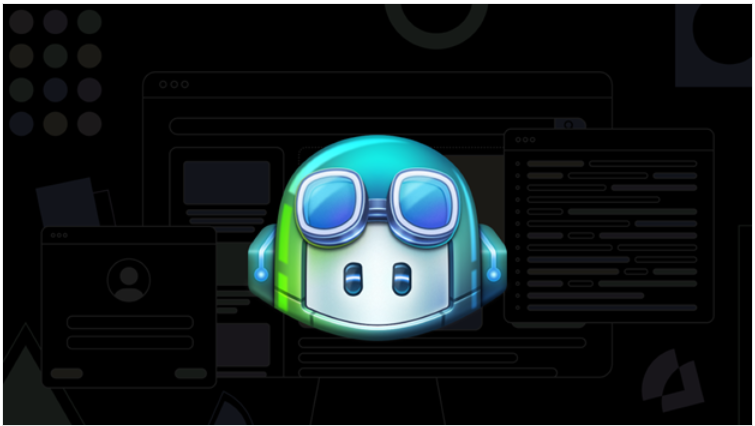Improving Developer Productivity with AI

In this unit, we will explore how GitHub Copilot simplifies development workflows, allowing developers to focus on solving complex problems rather than getting bogged down in repetitive coding tasks.
By the end of this unit, you will be able to:
- Understand how AI-powered tools like GitHub Copilot can reduce repetitive coding effort.
- Identify key areas in your workflow where GitHub Copilot can have the greatest impact.
Common Use Cases of AI to Optimize Developer Productivity
GitHub Copilot offers many ways to accelerate and simplify common development tasks. Here are some key areas where Copilot proves especially useful:
🚀 Accelerating the Learning of New Languages and Frameworks
Learning a new programming language or framework can be challenging, but GitHub Copilot makes the process smoother and faster by helping developers quickly grasp new concepts and apply them in practice.
GitHub Copilot bridges the gap between learning and implementation through:
- Code suggestions: Provides contextual code snippets that illustrate the use of unfamiliar functions and libraries, guiding developers in their implementation.
- Support for multiple languages: Eases the transition from one language to another.
- Documentation integration: Offers inline suggestions related to API usage and function parameters, reducing the need to constantly consult external documentation.
🔍 Real-World Example:
Imagine you’re working on a project in Golang, a language you’re not yet familiar with. GitHub Copilot can generate the code for you. Then, you can use the “Explain this” option in the context menu to understand what the code does.
Minimizing context switching
Context switching is a major source of productivity loss for developers. It can disrupt workflow and reduce focus. GitHub Copilot helps maintain concentration by providing relevant code suggestions within the current context, allowing developers to focus on solving complex problems.
Here’s how GitHub Copilot contributes to this goal:
- In-editor assistance: GitHub Copilot offers code suggestions directly within the development environment (IDE), reducing the need to search for solutions online.
- Quick references: When using APIs or libraries, GitHub Copilot can suggest appropriate method calls and parameters, limiting the need to consult documentation.
- Code completion: By automatically completing repetitive code patterns, GitHub Copilot helps developers stay in their flow without interruption.
Example:
In the example below, you can work with external resources (such as APIs or libraries) in your code without leaving the editor to consult documentation. This saves valuable time and allows you to focus on more strategic tasks, improving overall productivity and accelerating project delivery.
Improving documentation writing
GitHub Copilot significantly enhances the process of writing and maintaining code documentation:
- Inline comments: Generates contextually relevant comments to explain complex sections of code.
- Function descriptions: Automatically suggests function descriptions, including explanations of parameters and return values.
- README generation: Helps create project README files by suggesting structure and content based on the project’s code.
- Documentation consistency: Contributes to maintaining a consistent documentation style throughout the project.
GitHub Copilot can understand your code and assist in writing relevant comments or documentation, whether for a specific function or for the entire codebase.
🤖 Automating tedious tasks
GitHub Copilot excels at handling repetitive coding tasks, freeing up time for developers to focus on more complex and creative aspects of their work. Here are some ways to leverage GitHub Copilot for automation:
- Boilerplate code generation: GitHub Copilot can quickly generate basic code for common features, such as setting up a REST API or creating a class structure.
- Sample data creation: During testing, GitHub Copilot can generate realistic data, avoiding the tedious manual creation process.
- Writing unit tests: GitHub Copilot can suggest test cases and even generate complete unit tests based on existing code.
- Code translation and refactoring: GitHub Copilot helps refactor code by suggesting more efficient patterns or improved implementations, and can even convert code from one language to another.
By using GitHub Copilot to generate boilerplate code, you can speed up your development process and then customize the code to meet your specific needs.
Customized code completion
GitHub Copilot adapts to individual coding styles and project contexts, providing increasingly relevant suggestions over time, which improves code efficiency.
Here’s how GitHub Copilot achieves customized code completion:
- Contextual understanding: GitHub Copilot analyzes the development environment and project structure to offer more accurate and relevant code completions.
- Learning habits: As developers work on a project, GitHub Copilot learns from their coding habits and preferences, and adjusts its suggestions accordingly.
🔍 Example:
Notice in the example below how GitHub Copilot initially suggested one function writing style, but when a preferred style was used, it adapted and continued to offer suggestions in that preferred style.
By leveraging GitHub Copilot in these various ways, developers can significantly reduce the time spent on routine tasks, accelerate their learning of new technologies, and maintain better focus throughout their workday. This increased productivity allows more time to be dedicated to solving complex problems and driving innovation in their projects.
In the next unit, we will explore how GitHub Copilot aligns with developers’ preferences and common workflows.
